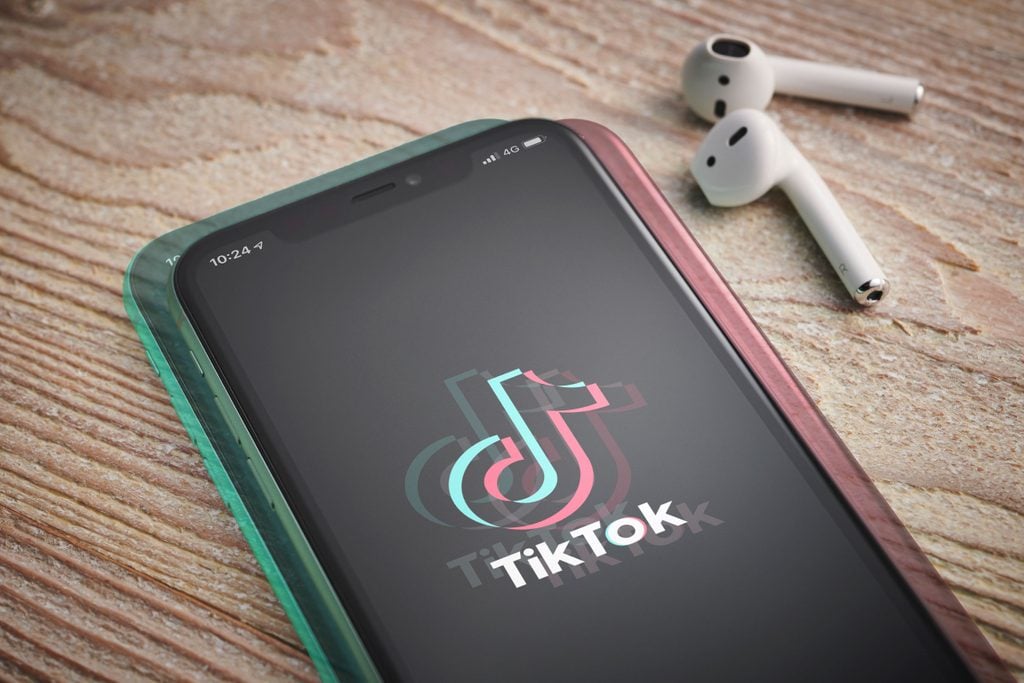The Dangers of TikTok That Are Worth Your Attention
Updated: Apr. 18, 2024

We all love TikTok, but there are many things we don't know yet about the app. After you click agree, are you putting yourself at risk?
Is time up on TikTok?
The app TikTok has been making headlines recently, amidst talks of Microsoft purchasing the short-form video platform. TikTok is hailed as a lighthearted, fun app despite various security concerns popping up over the last few years. In a world where a user can sign away their rights and information with a single click on a made-to-be-ignored contract, the fate of the emerging social media giant remains a topic of fierce debate.
TikTok (pronounced tick-tock) is an application with approximately 800 million active users worldwide. Of these users, around 40 percent are between the ages of 14 to 24. Many parents feel a responsibility to understand the dangers of social media and teach their children to be aware online. While TikTok’s demographic tends to skew towards the younger set, the über popular app attracts users of all different backgrounds, interests, professions, and ages to its intuitive and constantly-learning platform.
TikTok: An overview
TikToks are short-form videos ranging from a few seconds to one minute. These videos run the gamut from dance videos, video diaries, viral challenges, DIYs, or anything that immediately captures attention. TikTok is unique as TikTokers can use the sound bytes of other existing TikToks. Users can also play with built-in video and sound effects to recreate viral TikTok trends and challenges.
These short videos rack up hearts (much like the “likes” of Facebook or Instagram), comments, and reposts/duets. The video creators, known as TikTokers, aim for followers on the platform. Many TikTokers with large followings monetize their videos or promote their brand through specialized ads, merchandise, and partnerships. TikTok has its own special set of expectations and etiquette rules within its “something for everyone” content model.
Why is TikTok in the news right now?
To start, TikTok was the number one most downloaded app on the Apple App store in the first quarter of 2019. Since then, the popularity has continued to skyrocket. As of summer 2020, TikTok is on millions on mobile devices in the United States and abroad. TikTok has offered a supportive community for many on the app while also raising concerns over dangerous trends and effects on mental health.
Most recently, the app made headlines when the Microsoft corporation attempted to purchase a 30 percent stake of the parent company, ByteDance, of Beijing. Previously, the United States government threatened to ban the app over data security threats and national security concerns. As it stands at the moment, Microsoft is still moving forward with the acquisition.
Danger #1: Extended permissions in app
When a user downloads TikTok, they immediately must agree to a set of permissions to permit the app to function. These include access to your phone’s microphone, camera, contacts, location services, and clipboard.
Dr. Darren Hayes, Director of Cybersecurity and Assistant Professor at Pace University details the way that “the app uses permissions that allow the app developer (ByteDance) system access on the device. We are particularly concerned about the extraordinary amount of personal data being collected, about the user, in plaintext…the app stores user data in an unencrypted format on the device.”
The 2019 study at the Pace University Digital Forensics Research Lab also found that a “static analysis revealed that the application utilizes permissions that go well beyond the requirements of the application and many were deemed to be high risk.” This means that there is a chance that the app could implant or upload data from the user for unintended purposes. However, this concern is not unique to TikTok. Many similar apps, like those made by Microsoft, Apple, and other big-name tech companies, share this feature.
Danger #2: Data mining, selling, and storage
The first concern many users (and parents of young users) have about TikTok is the way data is stored and potentially shared. “For the average American, the privacy risks posed by TikTok aren’t strikingly different than the risks posed by the other leading social media companies,” according to Monia Eaton, COO and co-founder of FinTech company Chargebacks911. “All of these platforms, at least in part, are monetizing your data. That’s what they do. And the more data they have, the more money they can make. This makes a strong incentive to aggressively gather as much data as possible.”
The possible partial acquisition of TikTok by Microsoft would appease some of these concerns, according to Hank Schless, the Senior Manager of Security Solutions at Lookout. “A Microsoft buyout would also bring TikTok’s data collection practices under U.S. legislation,” says Schless. “TikTok data collection and storage practices would have to align with U.S. data privacy laws like CCPA and answer to the U.S. government if any of their practices are found to be malicious.”
Data storage is a concern associated with any app that can track location, record faces, and decipher preferences. Users are calling for transparency about the permissions and agreements they can sign away with a click. Further, users want to know where (and how securely) their data is stored and which parties have access to it. In the case of TikTok, users must be aware that the data is not contained within the app or its servers. In the pursuit of staying safe online, understand that apps often expressly protect themselves and do not necessarily have your best interest at heart.
Danger #3: National security
Claims swirled in 2019 and early 2020 about ByteDance and the Chinese version of TikTok, Douyin. News outlets found leaked “evidence” of the company instructing moderators to censor video deemed unfavorable or “sensitive” to the Chinese government or other investors. While these claims are largely unsubstantiated, some users have mixed feelings about the alignment and intentions of the app developers. TikTok has been very forthcoming with policy implementation and changes to mitigate these loyalty concerns. With the fear of cyber backdoors, hacking, facial recognition, location tracking, spyware, and other personally invasive technologies at the forefront of everyone’s mind, TikTok is partially a scapegoat for a larger issue.
The issue is complicated further by security agencies and large companies banning the app’s usage for their employees. While some organizations have since rolled back restrictions, the impact on the public perception of the app was dramatic. Politicians and policymakers called for an investigation and weighed in on the issue of national security and personal safety. “Politicians weighing in without a full understanding of the app’s dangers or a real explanation of why they banned it has polarized the issue more than it needed to be,” according to Adam Jackson, Founder and CEO of 360 Privacy. “But, I do not think the media could overhype or sensationalize any of the dangers of the app…anytime Amazon, major banks, and the Department of Defense ban employees from using an app for security issues, it’s probably time for everyone to uninstall the app”
What does this mean for the average TikTok user?
According to Rainny Fidelis, a cybersecurity writer for a UK security site, “while many of the vulnerabilities are seriously concerning, TikTok has shown a willingness to address these problems very quickly. In the end, these vulnerabilities seem more like the teething problems experienced by most tech startups than a witting attempt to put users at risk. Still, they call for caution.”
The mass majority of TikTok users likely do not have sensitive material or anything of international interest on their phones. Before use, users should note the app’s vulnerabilities, data collection practices, and potential risks. Especially considering the age demographics patterns of the app, there is room for a dangerous mix of trust, confusion, and blind agreement. Politics and national security aside, TikTok is still a growing and relatively new app in many ways. No matter the platform, there is potential for any data shared (willingly or not) to fall into the wrong hands. As with all activity online, it’s important to understand the risks and protect your personal data accordingly.
TikTok may be a big concern right now, but keep your wits about you and understand the ways the government could be spying on you.


